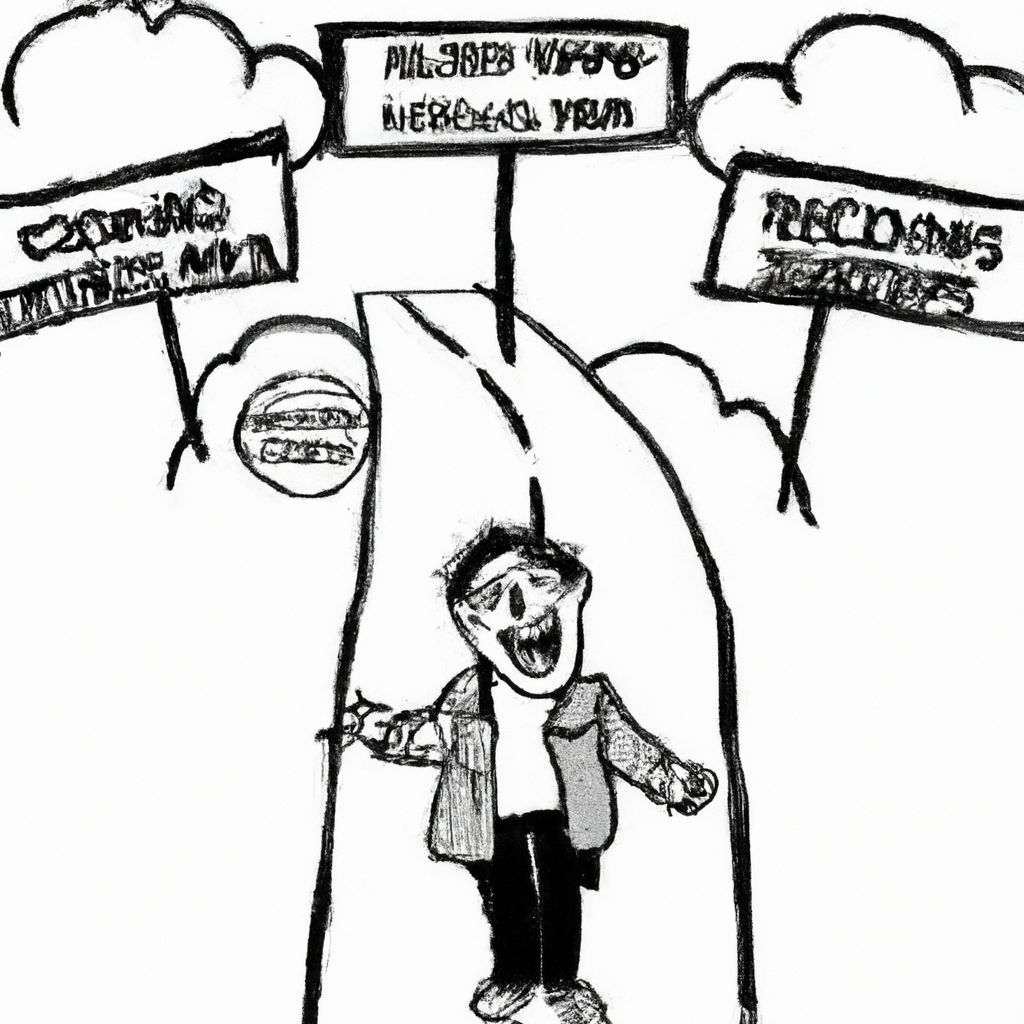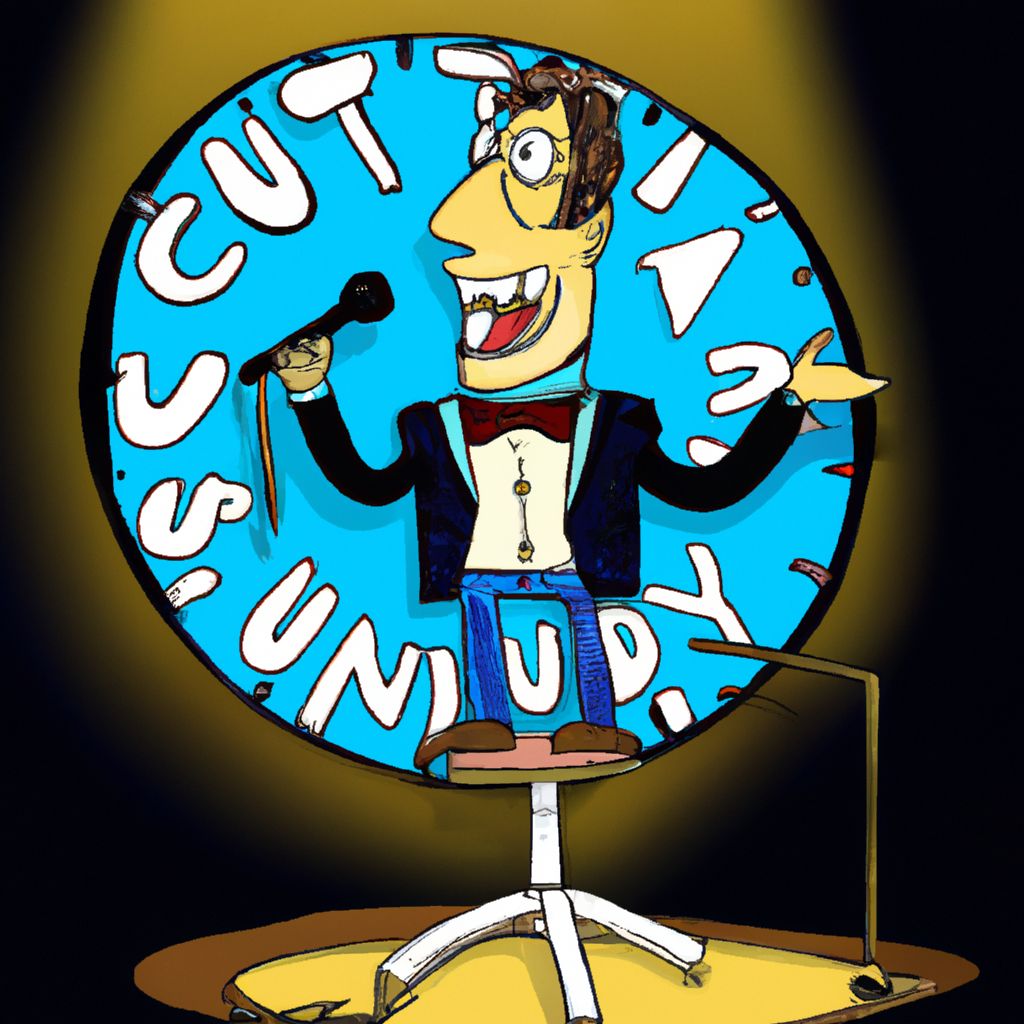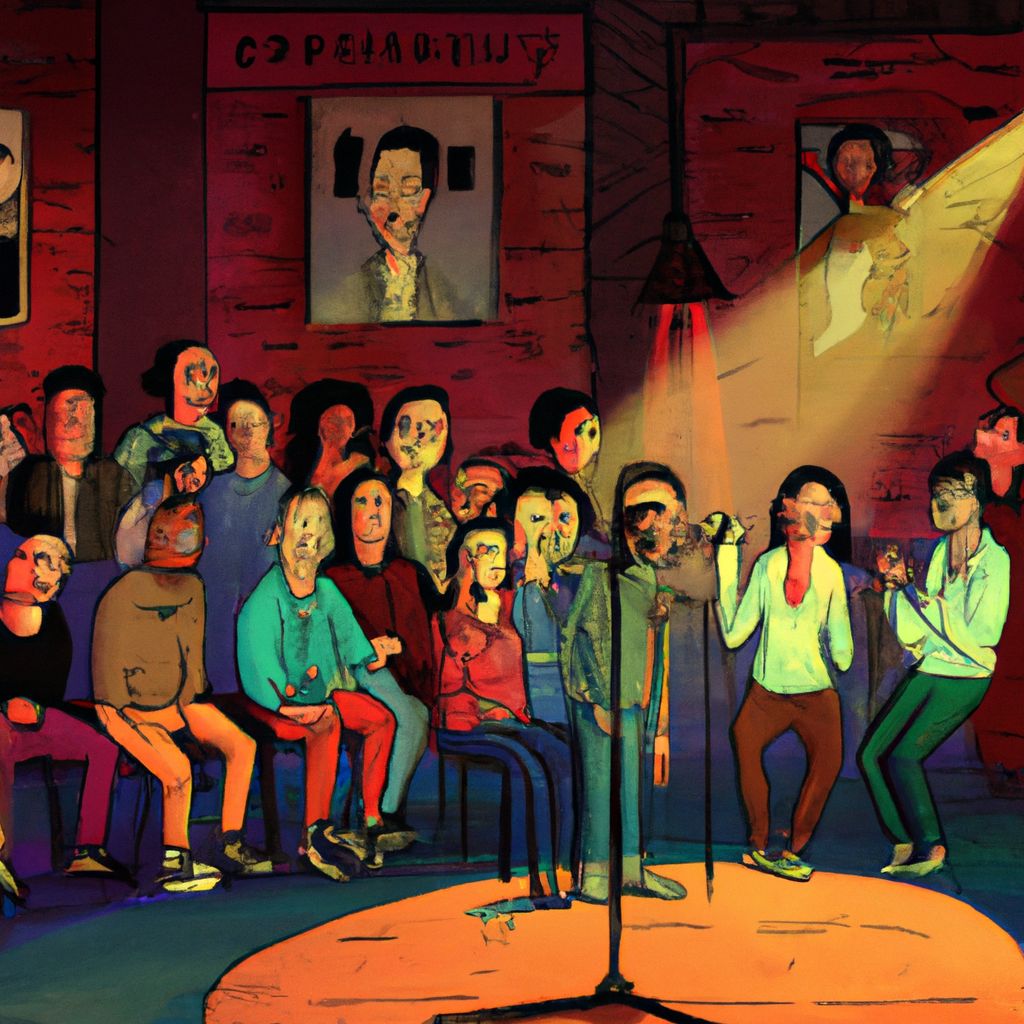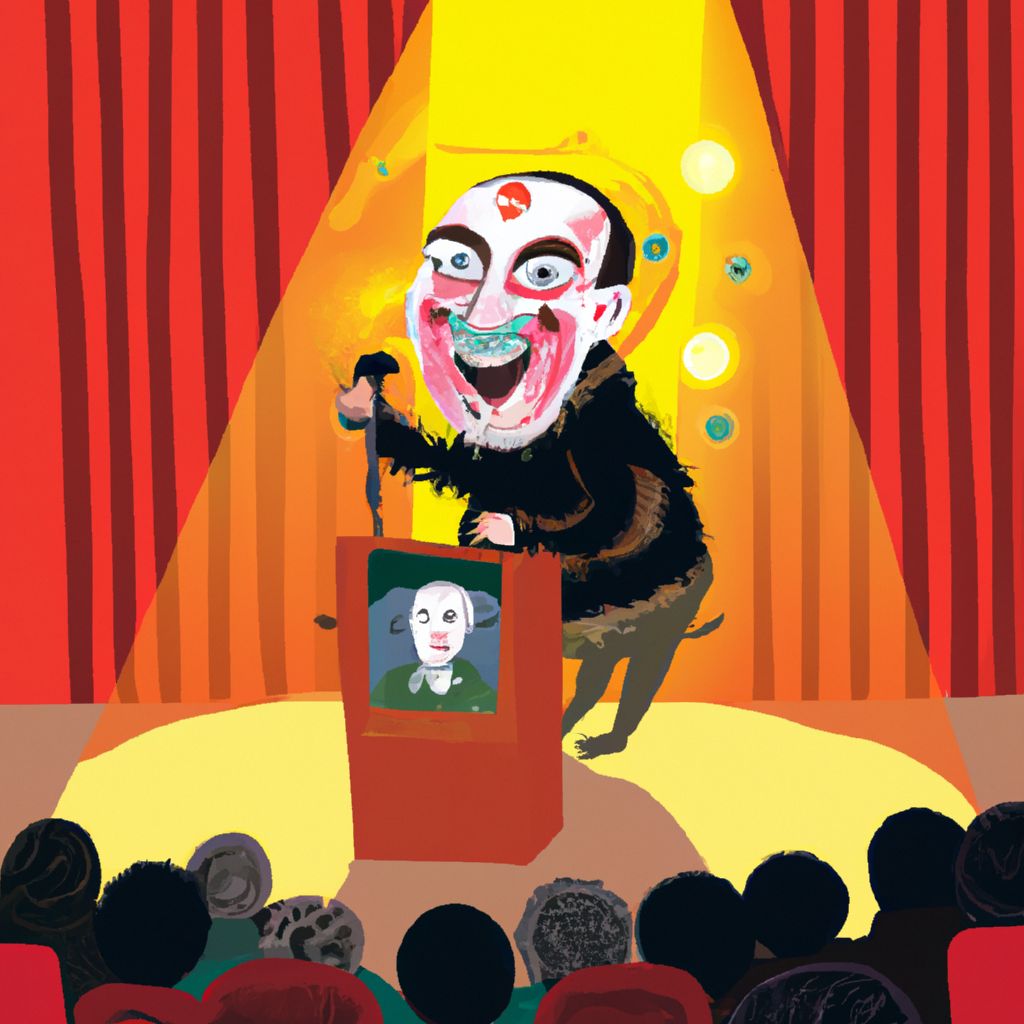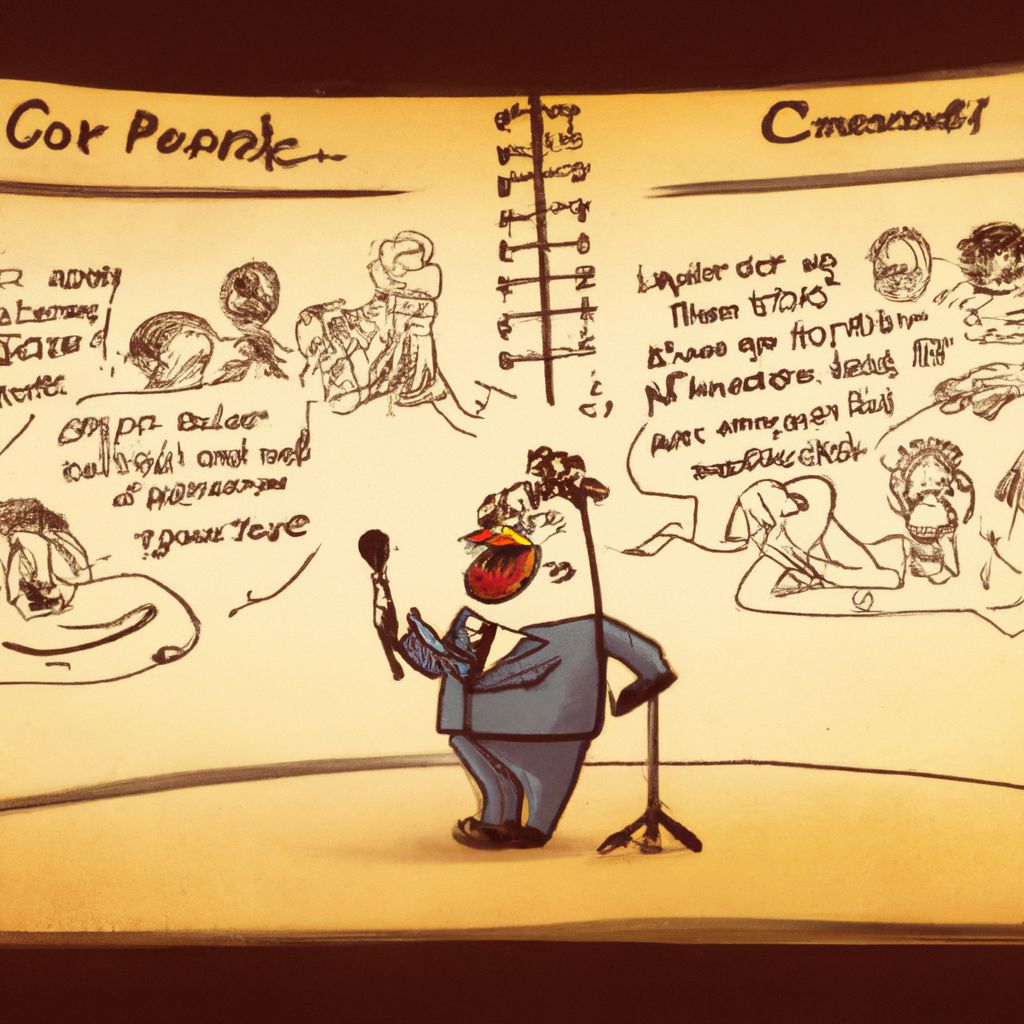- Introduction to Standup Comedy
- Understanding Your Audience
- Crafting Your Comedy Material
- Stage Presence and Delivery
- Testing and Refining Your Act
- Building a Professional Network
- Marketing Yourself as a Comedian
- Navigating the Business Side of Comedy
- Staying Inspired and Dealing with Rejection
- Conclusion: Embracing the Journey
Introduction to Standup Comedy
Standup comedy is a distinctive form of comedic performance where an individual, known as a standup comedian, entertains an audience with a unique blend of storytelling, jokes, and one-liners, typically delivered monologue style. Unlike other forms of comedy that might involve skits, props, or ensemble casts, standup is characterized by its direct communication with the audience, often involving interactive and impromptu elements.
The appeal of standup comedy lies in its raw, unfiltered nature and the intimate connection that forms between the performer and the audience. For the audience, there is the draw of live entertainment that can range from thought-provoking to downright hilarious, often providing a reflective mirror on society through satire and observational humor. Performers, on the other hand, relish in the immediate feedback of live reactions, which can be both exhilarating and daunting. The art form serves as a platform for self-expression and creative storytelling, and for many comedians, it acts as a cathartic outlet.
Becoming a standup comedian requires a fusion of innate talent, skill development, and relentless determination. At the foundation, one must have a keen sense of humor and the ability to view the world through a comedic lens. Building on this, a comedian must craft their material, which involves writing jokes and creating a cohesive set that resonates with audiences. Performance skills are equally crucial, as the delivery, timing, and stage presence can greatly enhance the humor of the content. Additionally, resilience and adaptability are key, as the journey of a standup comedian is often marked with highs and lows, requiring the ability to learn from both success and failure.
Understanding Your Audience
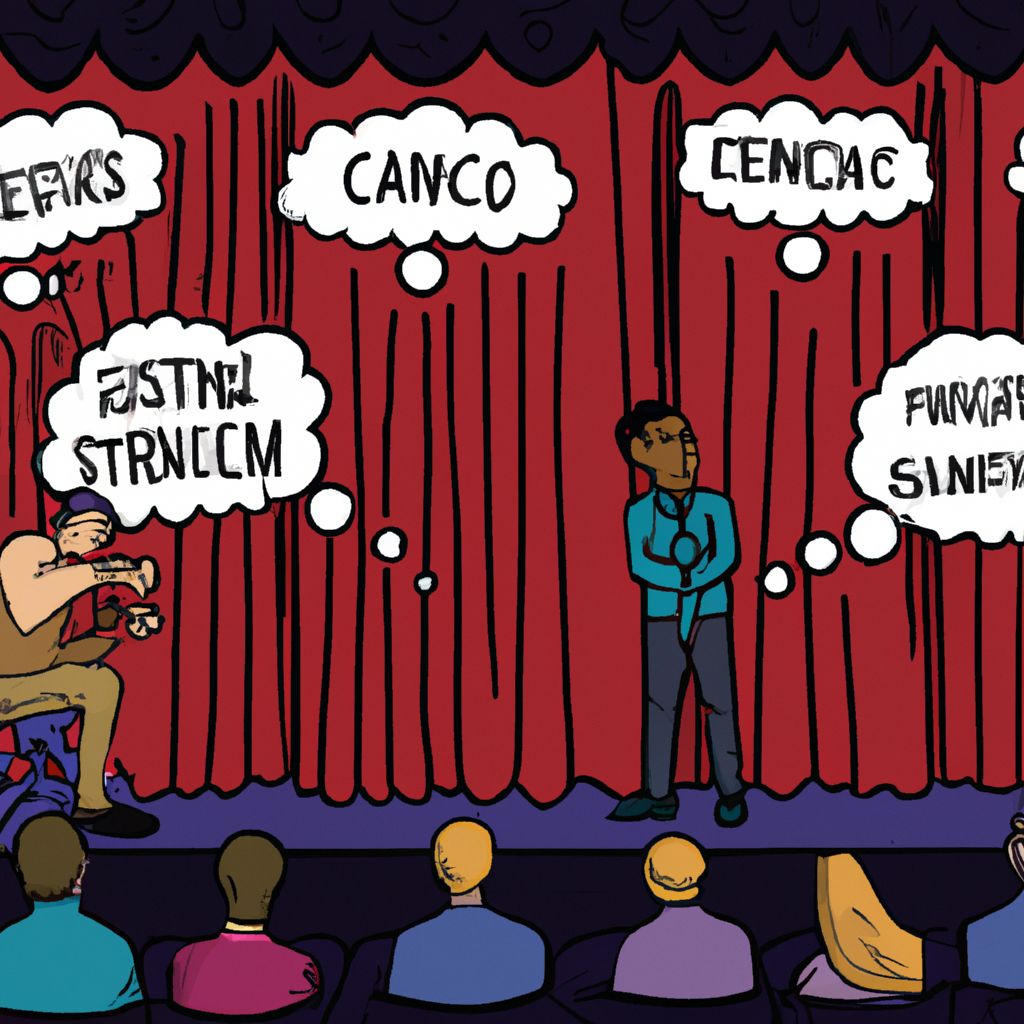
Understanding your audience is a pivotal aspect of standup comedy. A comedian's success hinges on their ability to resonate with their spectators, which can vary widely based on demographics such as age, cultural background, and social attitudes. Comprehending the preferences and humor tolerance of an audience allows a comedian to navigate the delicate balance between edgy and offensive, ensuring their material lands effectively.
Reading an audience is a skill honed through experience and acute observation. A standup comedian must pay attention to the audience's reactions—laughter, applause, silence—and adjust their performance in real time. Tips for reading an audience include:
- Starting with more universal jokes to gauge the audience's humor baseline.
- Observing body language—enthusiastic engagement or crossed arms can be telling.
- Listening for the type of laughter—whether it's scattered or full-bodied—to assess the room's energy.
- Engaging directly with the audience through questions or crowd work to build rapport.
Moreover, diversity in comedic material is essential in reaching a broad audience. A comedian should have an arsenal of content that can be adapted to different settings, whether performing at a college campus, a corporate event, or a comedy club. Diverse material not only helps to avoid alienating parts of an audience but also showcases a comedian's range and adaptability, which are attractive qualities in the industry.
It's important to remember that while an audience's response is a valuable metric, it should not completely dictate a comedian's artistic voice. Balancing audience preferences with authenticity ensures that a comedian remains true to their unique style, which is ultimately what distinguishes them in the entertainment industry.
Crafting Your Comedy Material
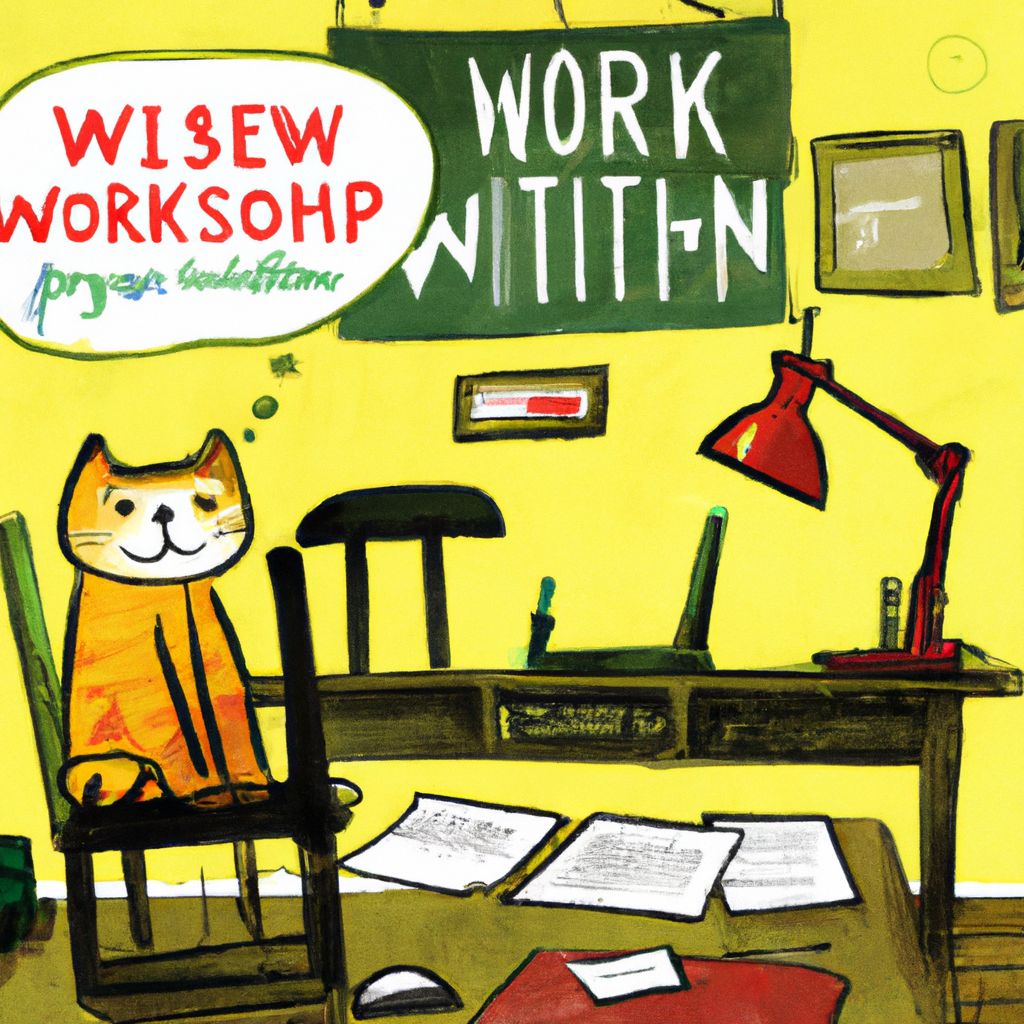
Crafting original comedy material is both an art and a science. It begins with joke writing, the fundamental unit of standup comedy. The process typically involves identifying a premise or observation that has humorous potential and then trimming and tweaking the language to elicit the maximum comedic effect. Efficiency of language is key in joke writing—every word should serve the humor.
Storytelling in standup comedy offers a broader canvas than a one-liner or a quick punchline. It allows comedians to weave longer narratives that build tension and culminate in rewarding payoffs. This narrative style of comedy can be particularly engaging, as it allows the audience to follow along on a journey, providing multiple laugh points along the way.
Developing a comedic style is a more nuanced endeavor, as it involves a comedian's persona, delivery, and thematic choices. Authenticity is crucial in this regard. Audiences can detect inauthenticity, and it often falls flat. Finding one's unique voice is about embracing individual quirks and viewpoints, which can set a comedian apart from others.
Techniques for writing and refining jokes include:
- Writing regularly: Making writing a daily practice helps comedians generate material and hone their voice.
- Testing material: Trying out jokes in front of an audience, noting the response, and then tweaking the setup or punchline accordingly.
- Recording sets: Listening to performances can help identify what's working and what isn't, including nuances in delivery.
- Collaborating: Getting feedback from fellow comedians can offer new perspectives and constructive criticism.
Life experiences play a vital role in comedy. They provide a wealth of material that is relatable and ripe for humor. Drawing on personal experiences not only fuels authenticity but also allows comedians to connect with their audience on a more intimate level. When an audience sees parts of their own life reflected in a comedian's material, it creates a powerful bond and makes the humor more impactful.
Ultimately, the creation of comedy material is a continuous cycle of writing, performing, revising, and reflecting. It's a pursuit that requires patience, insight, and the courage to share one's perspective with the world.
Stage Presence and Delivery
Stage presence and delivery are pivotal to a standup comedian's performance, often making the difference between a good set and a great one. Developing these skills involves a combination of practice, self-awareness, and technical understanding of performance dynamics.
For developing stage presence and confidence, here are some tips:
- Rehearse extensively: Familiarity with your material can boost confidence and allow for more natural delivery.
- Record rehearsals: Watching yourself can help identify strengths and areas for improvement in your presence.
- Start with smaller venues: Building experience in less intimidating settings can help you gradually build confidence.
- Visualize success: Mental preparation and visualization techniques can set a positive mindset.
Body language, timing, and voice modulation are tools that can significantly enhance delivery. Effective use of body language, such as purposeful gestures or facial expressions, can emphasize jokes and engage the audience. Timing is crucial—pausing before a punchline can increase anticipation, while delivering the punchline too soon or too late can weaken the impact. Voice modulation helps keep the audience's attention; varying pitch and volume can highlight different parts of a story or joke.
Handling stage fright is a common challenge for performers. Techniques to manage it include:
- Deep breathing exercises: These can help calm nerves and reduce anxiety before going on stage.
- Focusing on the material: Concentrating on the jokes rather than the audience can reduce performance pressure.
- Accepting nerves: Recognizing that nerves are a normal part of performing can alleviate the fear of them.
- Creating a pre-show routine: Rituals can provide a sense of control and familiarity.
Maintaining composure during a performance often comes down to experience and the ability to stay in the moment. If a joke doesn't land or an unexpected event occurs, a seasoned comedian will often use humor to address the situation. This quick thinking can turn a potential setback into a moment of relatable, genuine comedy.
As with any performance art, developing stage presence and delivery takes time. Embracing every opportunity to perform will allow these skills to grow, eventually becoming second nature on the comedy stage.
Testing and Refining Your Act

Testing and refining an act is an essential step in the evolution of a standup comedian's career. Small venues and open mic nights serve as the laboratories where material is experimented with, reactions are gauged, and adjustments are made. These low-stakes environments provide an ideal setting for comedians to try out new jokes and observe firsthand what resonates with an audience.
The process typically involves performing a set in front of a live audience and noting the responses to different jokes. Key indicators of success include laughter, applause, and overall engagement. Conversely, silence or confusion can signal that a joke needs reworking. Here are some strategies for using these testing grounds effectively:
- Rotate material: Varying the jokes or their order can help identify which parts of the act are consistently effective.
- Adjust on the fly: Being willing to change delivery or wording in the moment based on audience reactions can lead to immediate improvements.
- Be observant: Paying close attention to the audience's non-verbal cues provides valuable insight into the effectiveness of the material.
Feedback is a crucial component of refining an act. Constructive criticism from fellow comedians, the audience, or even friends can offer new perspectives and highlight areas for improvement. It's important to approach feedback with an open mind and not take any negative responses personally. Instead, use the information to strengthen the act.
Strategies for updating and refining jokes based on audience reactions include:
- Recording sets: Listening to recordings can help identify exactly where and why a joke may have faltered.
- Iterative rewriting: Revise punchlines or setups that aren't working and test the new versions at the next opportunity.
- Seeking patterns: Look for consistencies in audience reactions to understand what works across different demographics or venues.
- Being patient: Recognize that refining an act is a process that can involve many iterations before a joke lands as intended.
Remember, the goal is to craft a set that is both true to the comedian's voice and entertaining to the audience. Through testing and refining, comedians sharpen their material, ensuring that their performances are as impactful as possible.
Building a Professional Network

Networking within the comedy community is a critical factor in the growth and success of a standup comedian. Building relationships with peers, promoters, and venue managers can lead to opportunities for gigs, valuable feedback, and insider knowledge of the industry. Moreover, networking can open doors to mentorship, collaborations, and the exchange of ideas, all of which can significantly accelerate a comedian's development.
Here are some tips on effectively networking within the comedy scene:
- Attend shows regularly: Being a frequent presence at comedy clubs and events can help you become a recognized figure within the community.
- Engage with peers: Don't hesitate to introduce yourself to other comedians. Sharing experiences and advice can lead to lasting professional relationships.
- Be supportive: Show genuine interest in others' work. Attending their shows and offering constructive feedback can help build rapport.
- Connect on social media: Follow local comedians, clubs, and industry figures to stay informed about events and opportunities for collaboration.
When it comes to connecting with promoters and venue managers, professionalism is key. Make sure to:
- Present yourself well: Have a polished set and promotional materials ready to showcase your act.
- Follow up: After making an initial contact, follow up with a polite message or email expressing your interest in performing at their venue.
- Offer value: Be clear about what you can bring to their venue, such as a unique comedic style or a following that can boost attendance.
Mentorship and collaboration are also instrumental in a comedian's career. A mentor can provide guidance, advice, and feedback that comes from years of industry experience. Collaborating with other comedians can lead to new creative projects, writing partnerships, or simply the opportunity to learn from one another's strengths.
Ultimately, building a professional network is about fostering a community that supports and uplifts its members. By engaging sincerely and consistently with this community, comedians can create a foundation for a robust and dynamic career in standup comedy.
Marketing Yourself as a Comedian

Building a personal brand and effectively marketing oneself is essential for standup comedians in the digital age. A strong online presence can help comedians reach a wider audience, attract bookings, and create opportunities for growth beyond the stage.
To establish a personal brand, comedians should:
- Identify their unique angle: Whether it's a particular comedic style, theme, or persona, understanding what sets you apart is crucial for branding.
- Be consistent: Use consistent messaging, imagery, and tone across all platforms to reinforce your brand identity.
- Engage with audiences: Interaction with followers can build loyalty and encourage word-of-mouth promotion.
Marketing through social media and digital platforms involves several strategies:
- Choose the right platforms: Focus on social media channels where your target audience is most active, whether that's Instagram, Twitter, TikTok, or others.
- Content is king: Share both promotional and value-added content, such as clips from performances, behind-the-scenes peeks, or humorous takes on current events.
- Consistency: Post regularly to keep your audience engaged and to increase visibility through platform algorithms.
Creating a compelling online presence also includes:
- Professional content: High-quality videos, images, and well-produced audio can help you stand out.
- A personal website: A central hub for your content, show dates, and contact information adds professionalism to your brand.
Podcasts are another powerful tool for comedians. Hosting or guesting on podcasts can help you reach new audiences, showcase your humor, and discuss your craft in depth. It's also a platform for telling stories that may not fit into your stage act.
Leveraging digital content to gain exposure includes:
- SEO: Optimize your website and content for search engines to increase discoverability.
- Collaborations: Work with other comedians or influencers to tap into each other's audiences.
- Online ads: Consider using targeted advertising to promote shows or content to specific audiences.
Remember, the goal of marketing as a comedian is not just to gain followers but to convert that online engagement into real-world opportunities, such as show tickets sold or bookings for events. By cultivating a strong brand and online presence, comedians can harness the power of digital platforms to amplify their reach and accelerate their career trajectory.
Navigating the Business Side of Comedy
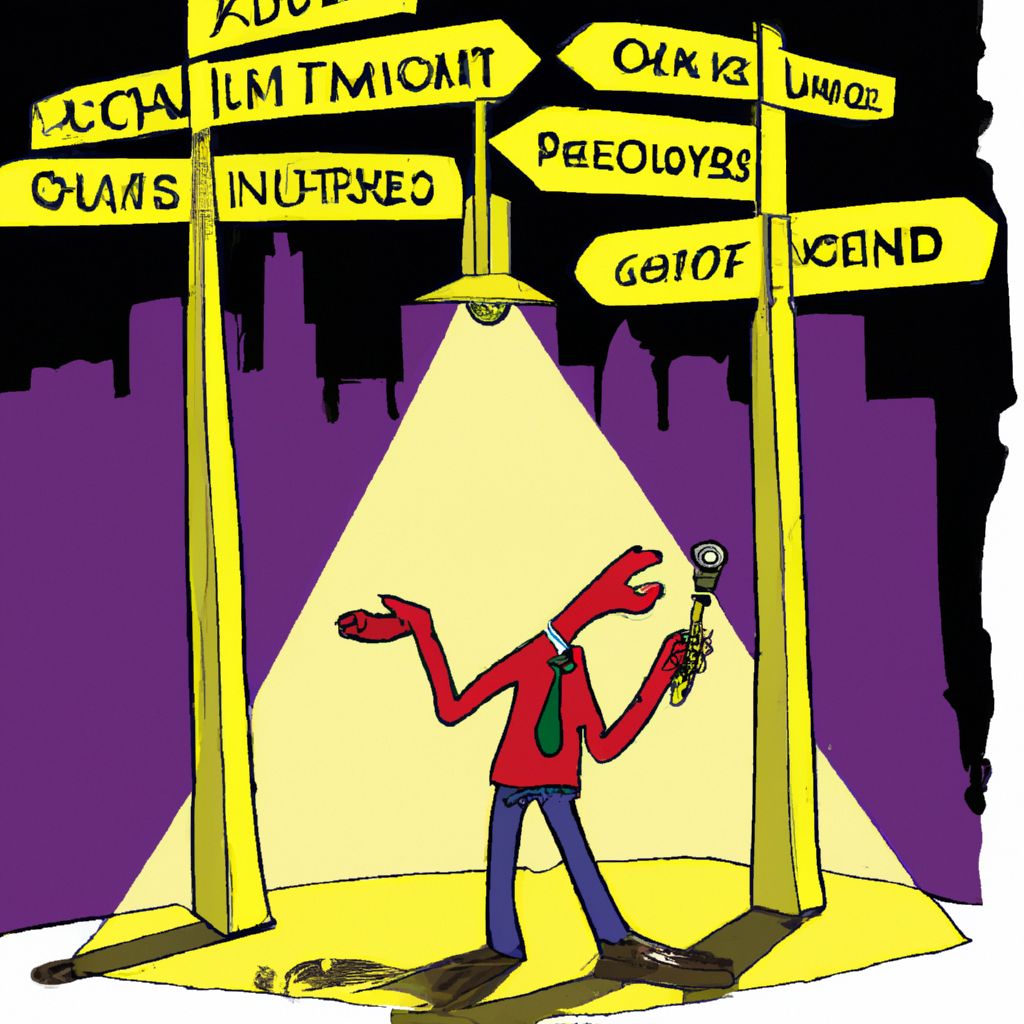
The business side of standup comedy is as critical as the creative aspects when it comes to building a sustainable career. Navigating this landscape involves understanding how to find gigs, negotiate contracts, and manage finances effectively.
Finding gigs often requires a proactive approach:
- Networking: Utilize connections within the comedy community to learn about available opportunities.
- Marketing: Promote your act through social media, a personal website, and by performing at open mics and comedy festivals.
- Booking agents: Consider partnering with a booking agent who can help secure gigs, though this typically involves commission fees.
When it comes to negotiating contracts, key considerations include:
- Understanding your worth: Research industry standard rates for someone with your experience and track record.
- Reading the fine print: Be clear on the details of the agreement, including performance expectations, duration, compensation, and cancellation policies.
- Being prepared to negotiate: Approach negotiations with confidence and be ready to discuss terms like payment schedules and any additional benefits.
Managing finances is also vital:
- Budgeting: Keep track of income and expenses to understand your financial health and to plan for slower periods.
- Saving: Set aside a portion of your earnings for taxes and unexpected costs.
- Multiple revenue streams: Explore various income sources such as merchandise sales, writing gigs, or teaching workshops.
Understanding industry standard rates is important not only for personal income expectations but also for maintaining the value of comedy as a profession. Rates can vary based on factors such as geographic location, venue size, and the comedian's level of experience. Being informed helps in negotiating fair compensation for your performances.
Monetizing a comedy career can involve:
- Merchandising: Selling branded merchandise like t-shirts, mugs, or digital content can provide additional revenue.
- Content platforms: Monetize digital content through platforms such as YouTube, Patreon, or by offering paid online comedy courses.
- Corporate events: These can be lucrative gigs, often paying higher rates than traditional comedy clubs.
Ultimately, a successful comedy career requires balancing the creative drive with business savvy. By understanding the business aspects, comedians can protect their interests, ensure fair compensation, and establish a financial foundation that allows them to continue doing what they love.
Staying Inspired and Dealing with Rejection

Staying motivated and inspired in the face of rejection or tough crowds is a significant challenge in the comedy industry. Rejection is an inevitable part of the journey, but it's the comedian's response to these setbacks that can define their career trajectory.
Resilience and perseverance are foundational qualities for comedians. The ability to bounce back from disappointment and keep moving forward is what separates those who achieve longevity in the industry from those who don't. A few strategies to maintain motivation and inspiration include:
- Setting goals: Having clear, achievable goals can provide direction and a sense of purpose.
- Seeking inspiration: Consume a wide range of comedic material, attend shows, and engage with other art forms to fuel creativity.
- Developing a support network: Surround yourself with peers who understand the challenges and can offer encouragement.
- Embracing new experiences: Step outside your comfort zone, as new experiences can lead to fresh material and perspectives.
Implementing self-care routines can also help manage the emotional toll of rejection. Activities such as exercise, meditation, or hobbies unrelated to comedy can provide a mental and emotional reset.
When faced with setbacks, using them as a learning experience is crucial. Here are ways to turn rejection into fuel for growth:
- Reflect objectively: Analyze what happened and why. Was it the material, delivery, or simply not the right audience?
- Request feedback: If possible, ask for constructive criticism from trusted sources who witnessed the performance.
- Revise and refine: Use the insights gained to tweak your act. Perhaps a joke needs rewording, or the delivery could be more dynamic.
- Stay persistent: Recognize that even the most successful comedians have faced rejection and that persistence is key.
The importance of resilience in the comedy industry cannot be overstated. It's the resilience that allows comedians to endure the highs and lows, learn from their experiences, and ultimately refine their craft. By viewing each setback as an opportunity for growth, comedians can continue to evolve and improve, ensuring they are ready for the next opportunity that comes their way.
Conclusion: Embracing the Journey
